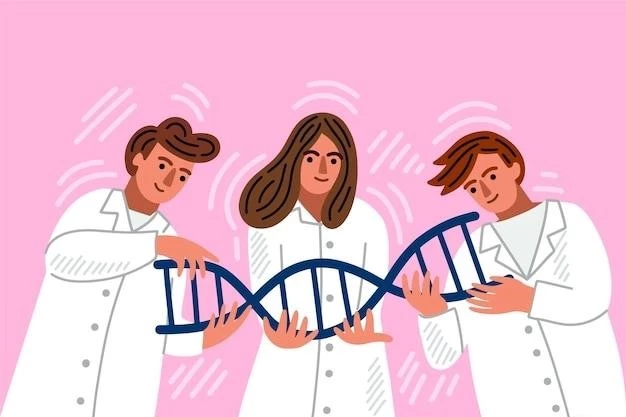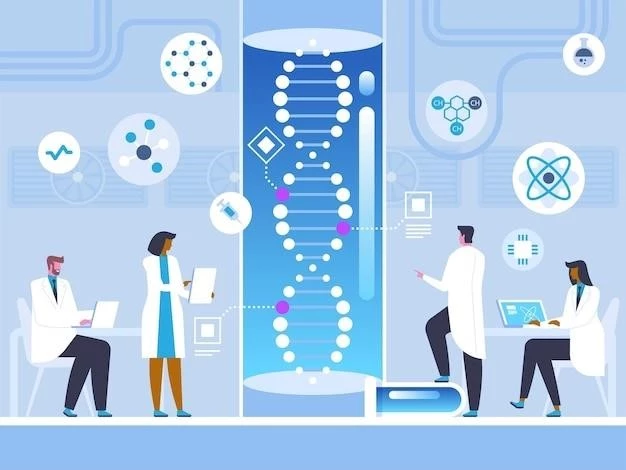Chromosome 1 duplication disorders involve genetic abnormalities in the duplication of specific regions of chromosome 1.
Introduction to Chromosome 1 Duplication Disorders
Chromosome 1 duplication disorders refer to genetic conditions where specific segments of chromosome 1 are abnormally copied. These duplications can lead to a range of physical, cognitive, and developmental challenges. Understanding the molecular mechanisms underlying these disorders is crucial for accurate diagnosis and effective management. Research into Chromosome 1 abnormalities continues to provide insights into the complex nature of these genetic conditions, offering hope for improved diagnostic methods and therapeutic interventions in the future.
Genetic Implications of 1p21 Duplication
1p21 duplication can lead to a variety of genetic consequences impacting development and overall health.
Explanation of 1p21 Duplication
1p21 duplication involves an extra copy of genetic material in the short arm of chromosome 1 at position 21. This duplication can result in genetic variations that may impact the individual’s health and development. Understanding the specific genes involved in the duplicated region is crucial for comprehending the potential implications on physical and cognitive functions. Further research is needed to elucidate the precise mechanisms by which 1p21 duplication contributes to the manifestation of chromosome 1 duplication disorders.
Genetic Mechanisms Involved
The genetic mechanisms underlying chromosome 1 duplication disorders, such as 1p21 duplication, are complex and multifaceted. These duplications can arise from errors during DNA replication or recombination processes, leading to an extra copy of genetic material in specific regions of chromosome 1. The duplicated genes may then interfere with normal cellular functions, impacting crucial biological processes and contributing to the clinical manifestations observed in affected individuals. Investigating the intricate genetic pathways involved in these duplications is essential for a deeper understanding of the pathogenesis of chromosome 1 duplication disorders and the development of targeted treatment approaches.
Clinical Manifestations of Chromosome 1p32 Duplication
Chromosome 1p32 duplication can result in a range of clinical symptoms affecting various aspects of health and development.
Overview of Clinical Symptoms
Clinical manifestations of chromosome 1p32 duplication may include physical abnormalities, intellectual disabilities, developmental delays, speech and language impairments, behavioral problems, and neurological issues. Individuals with this duplication may exhibit a spectrum of symptoms that can impact their quality of life and require multidisciplinary medical care. Understanding the diverse clinical presentations associated with chromosome 1p32 duplication is essential for early diagnosis, intervention, and tailored management strategies to address the complex needs of affected individuals.
Impact on Physical and Cognitive Development
Chromosome 1p32 duplication can have significant implications on both physical and cognitive development. Individuals with this duplication may experience delays in motor skills acquisition, growth abnormalities, intellectual disabilities, and challenges in learning and social interactions. The effects on physical and cognitive development can vary in severity, requiring tailored interventions to address specific needs. Early identification and comprehensive support services play a crucial role in optimizing the developmental outcomes for individuals affected by chromosome 1p32 duplication.
Diagnosis and Management of 1p21 p32 Duplication Syndrome
Accurate diagnosis and comprehensive management strategies are vital for addressing the complexities associated with 1p21 p32 duplication syndrome.
Methods for Diagnosis
Diagnosing 1p21 p32 duplication syndrome typically involves genetic testing such as chromosomal microarray analysis (CMA) or fluorescence in situ hybridization (FISH). These tests can identify the specific duplication in chromosome 1 and provide valuable information for accurate diagnosis. Additionally, clinical evaluations, including physical examinations and developmental assessments, play a crucial role in the diagnostic process. Early and precise diagnosis is key to implementing appropriate interventions and personalized management plans for individuals with 1p21 p32 duplication syndrome.
Treatment and Management Strategies
The management of chromosome 1 duplication conditions involves a multidisciplinary approach tailored to individual needs. Treatment strategies focus on addressing specific symptoms and complications, including developmental delays, cognitive impairments, and physical abnormalities. Interventions may include early interventions, speech therapy, occupational therapy, educational support, and medical monitoring. Collaborating with specialists such as geneticists, neurologists, and therapists is essential for providing comprehensive care. Ongoing evaluation and adjustment of management plans are vital to optimize outcomes and enhance the quality of life for individuals with chromosome 1 duplication disorders.
Research Updates on Chromosome 1 Abnormalities
Stay informed about the latest advancements in research on chromosome 1 abnormalities for improved understanding and management.
Current Studies and Findings
Ongoing research on chromosome 1 abnormalities focuses on elucidating the genetic underpinnings, exploring novel diagnostic methods, and investigating potential therapeutic targets. Recent studies have identified specific genes within the duplicated regions of chromosome 1 associated with distinct clinical features. Additionally, advancements in technologies like next-generation sequencing have enhanced our ability to characterize complex chromosomal rearrangements. These discoveries pave the way for personalized medicine approaches and the development of precision therapies tailored to individuals with chromosome 1 duplication disorders. Continued investigation is essential for further unraveling the complexities of these genetic conditions and improving patient outcomes.
Implications for Future Research
Future research on chromosome 1 duplication disorders holds promise for advancing our understanding of the genetic mechanisms underlying these conditions. Investigating the molecular interactions of duplicated genes and their impact on cellular pathways can provide valuable insights into disease pathogenesis. Furthermore, exploring innovative diagnostic tools, such as whole-genome sequencing and functional genomics, may enhance early detection and personalized treatment strategies for individuals with chromosome 1 duplications. Collaboration among researchers, clinicians, and genetic counselors is essential for translating research findings into clinical practice, ultimately improving outcomes and quality of life for affected individuals.

Impact of 1p21 p32 Duplication on Development
1p21 p32 duplication can have profound effects on physical and cognitive growth, necessitating comprehensive management.
Developmental Challenges Associated with the Duplication
Individuals with 1p21 p32 duplication may face developmental challenges such as delays in achieving milestones, speech and motor skill deficits, intellectual disabilities, and behavioral issues. These challenges can impact daily functioning and require tailored interventions to support optimal development. Early identification and early intervention services play a critical role in addressing the developmental needs of individuals with 1p21 p32 duplication, promoting their overall well-being and quality of life.
Long-term Effects on Growth and Functioning
The long-term impact of 1p21 p32 duplication on growth and functioning can present challenges across the lifespan. Individuals with this duplication may experience ongoing difficulties in physical development, cognitive abilities, social interactions, and independence. These long-term effects require continuous monitoring, multidisciplinary interventions, and personalized support to address evolving needs over time. Understanding the persistent impact of 1p21 p32 duplication on growth and functioning is essential for implementing effective long-term management strategies that promote the individual’s overall health and quality of life.
Treatment Options for Chromosome 1 Duplication Conditions
Diverse therapeutic approaches exist for managing chromosome 1 duplication disorders, addressing unique clinical needs effectively.
Therapeutic Approaches Available
Therapeutic interventions for chromosome 1 duplication disorders encompass a multidisciplinary approach, including speech therapy, physical therapy, educational support, and behavioral interventions. Medical management focuses on addressing specific symptoms and complications, while early intervention services aim to optimize developmental outcomes. Additionally, genetic counseling plays a crucial role in providing information, support, and guidance to individuals and families affected by chromosome 1 duplications. Collaborative care involving healthcare professionals, educators, and caregivers is essential for the comprehensive and holistic management of chromosome 1 duplication conditions.
Challenges in Treatment and Care
The management of chromosome 1 duplication conditions presents various challenges, including the complexity of genetic implications, diverse clinical manifestations, and the need for coordinated multidisciplinary care. Treatment strategies must be tailored to address the unique needs of individuals with chromosome 1 duplications, requiring ongoing monitoring and adjustments. Access to specialized services, financial barriers, and the emotional impact on families further add to the challenges in providing optimal care. Overcoming these obstacles necessitates a collaborative approach, strong support systems, and a deep understanding of the intricate interplay between genetic factors and clinical presentations in chromosome 1 duplication disorders.
